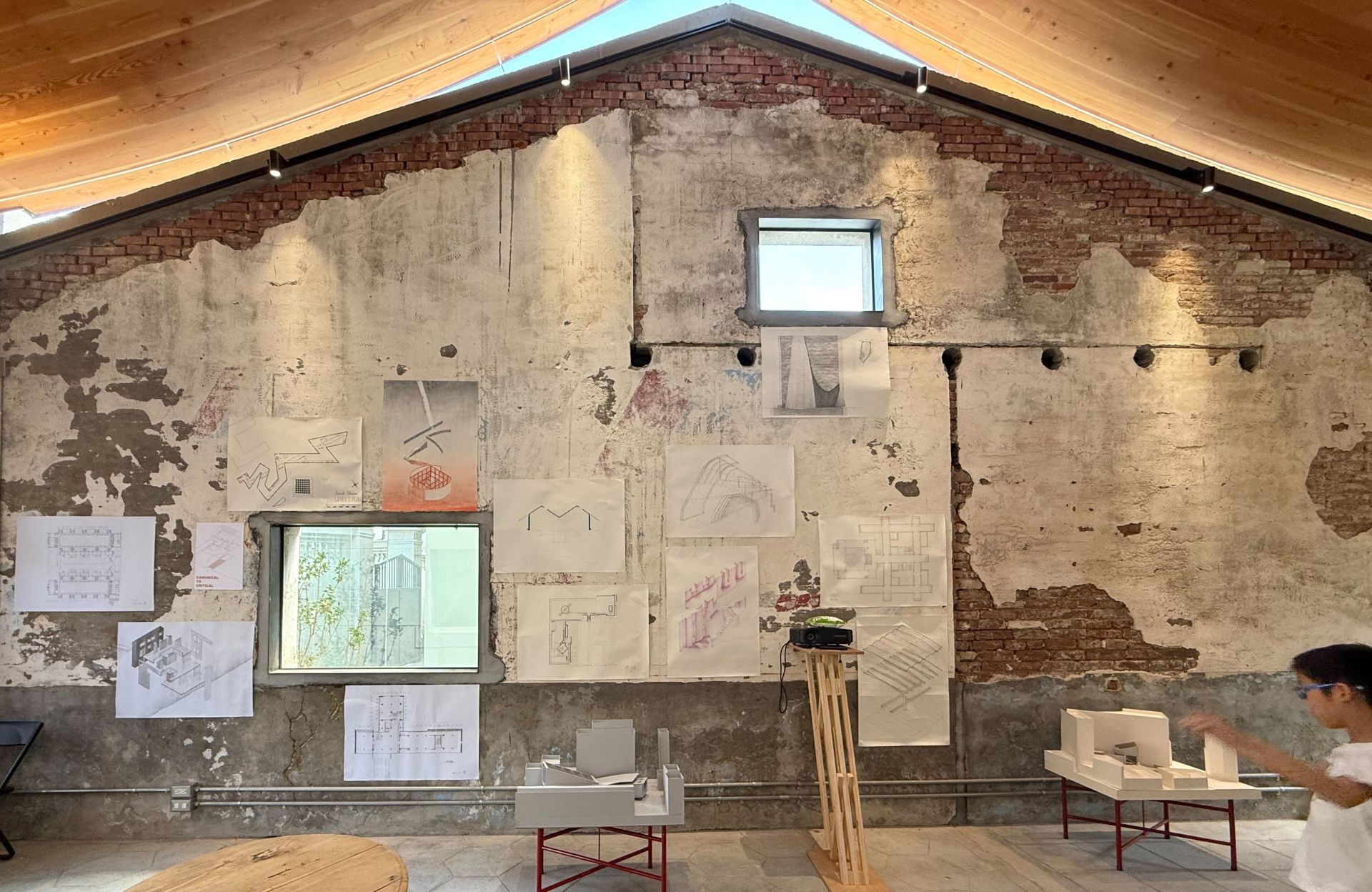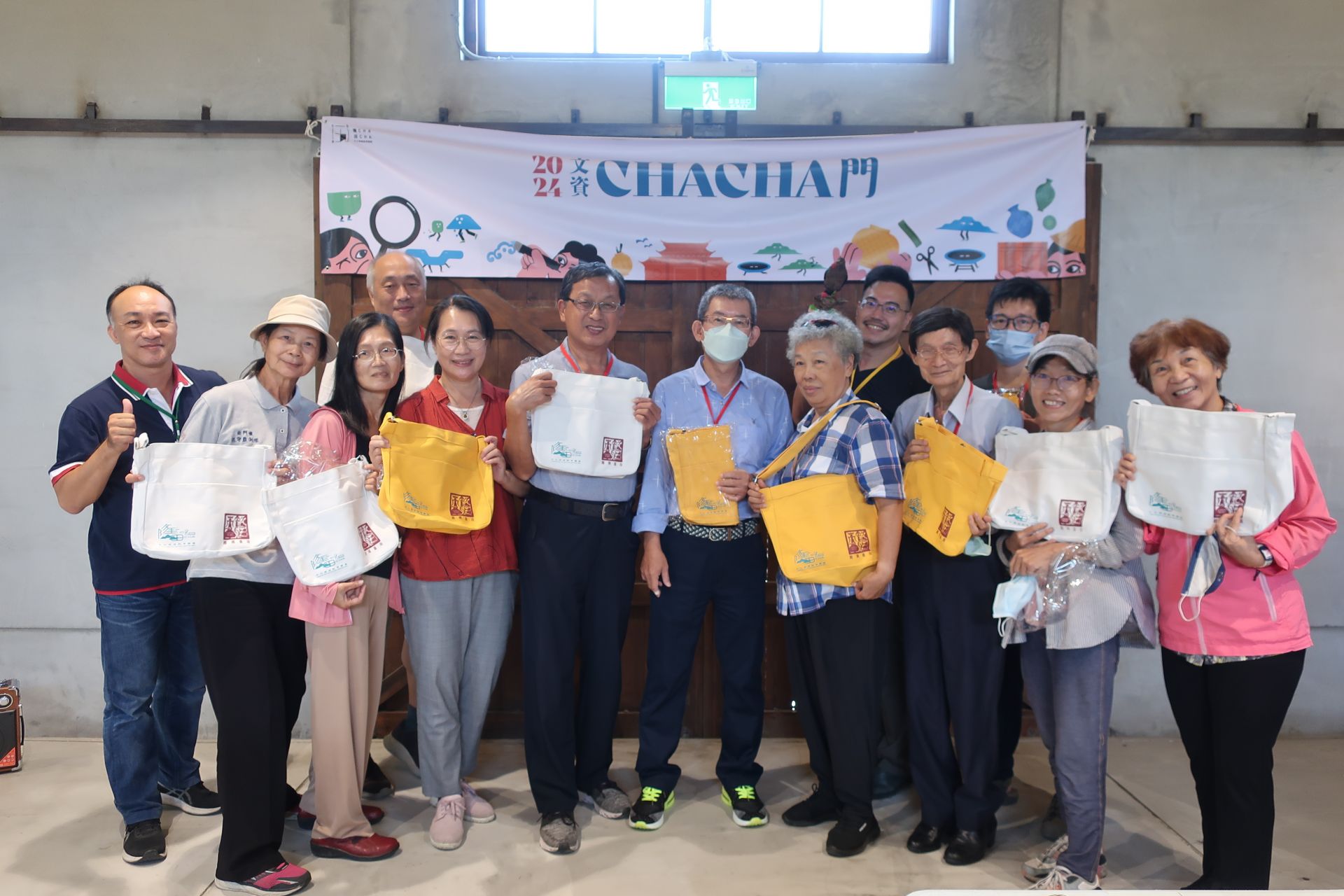Belmont Forum international workshop explored the challenges and opportunities related to residual flood risks.
On November 27, prior to the meeting, Professor Wang's team led members from the United States and Germany on a site visit. They first visited the Rende Detention Basin, where the Water Resources Bureau of the Tainan City Government explained the drainage sharing of the Dawan River, landscape construction of the Rende Detention Basin, and systematic improvements to the San-ye Creek drainage system. Next, they proceeded to the embankment in the middle reaches of the Madou section of the Zengwen River Basin, where the Sixth River Basin Office of the Water Resources Agency introduced the sedimentation, dredging, and ecological conservation situation of the Zengwen River, followed by a visit to the Sucuo Detention Basin to explain measures to cope with extreme weather flooding and land inundation.
During the opening speech by the Dean of the College of Engineering at NCKU, Chyan-Deng Jan, he not only welcomed international participants but also emphasized the critical importance of addressing residual risks associated with escalating climate change threats. He pointed out that "existing protective designs may not be sufficient to cope with future extreme events, and international dialogue and knowledge exchange are necessary." He expressed the hope that such collaborations could strengthen Taiwan's management of residual risks.
Subsequently, scholars and representatives from different countries discussed two main topics: "Experiences, Lessons, and Insights on Residual Risks" and "Residual Risk Management and Sustainable Development Goals (SDGs)." In the lively discussions, topics such as risk mapping, flood potential mapping technology, policies and regulations, and Nature-based Solutions (NbS) were touched upon.
This workshop is part of the Belmont Forum project on "Challenges in Achieving Sustainable Development Goals - Residual Risks of Extreme Floods." Professor Anna Serra-Llobet from the University of California, Berkeley, explained, "Our goal is to establish a global network of experts. In addition to information exchange, we will also create a problem framework to assist in planning more resilient strategies for communities to cope with residual flood risks. We will also incorporate Nature-based Solutions into flood risk management, considering relevant issues such as environmental justice. Finally, we will establish guidelines to assist in the analysis, prediction, and mitigation of residual flood risks."
Drawing from the German experience, Professor Peter Fröehle from Hamburg University of Technology emphasized the most important aspect as the "need to shape a common understanding of 'risk,'" explaining that residents at all levels should enhance risk awareness, possess sufficient knowledge and administrative power for planning and implementation, and improve engineering technology and warning systems to reduce residual flood risks.
The Taiwanese team also shared case experiences, such as the National Disaster Reduction and Rescue Center explaining lessons learned from Typhoon Morakot, including information dissemination channels during emergencies, the coordinated action system integrating GIS, and the task force for coordinated decision-making and actions. The Water Resources Agency shared the modeling technology for the fourth-generation flood potential map. The Sixth River Basin Office shared strategies for climate change adaptation in the Zengwen River Basin, incorporating NbS thinking and considering both flood control and ecological conservation. The Water Resources Bureau of the Tainan City Government used the San-ye Creek drainage improvement as an example to explain the establishment of a smart flood prevention network and the construction of a self-sufficient disaster prevention community.
Professor Hsiao-Wen Wang from the Department of Hydraulic and Ocean Engineering at NCKU pointed out that the concept of "residual risk" is relatively unfamiliar in Taiwan, and its meaning and strategies have not yet fully integrated into local discourse. Professor Wang mentioned, "Following the first two workshops in the United States, this is the third workshop of the Belmont Forum International Collaboration Project on Flood Residual Risks. We have gained a deeper understanding of international collaboration experiences and lessons. National policies play a crucial role in influencing flood risk management, and public participation and communication are especially important. For example, European countries can be a reference for using risk maps following EU directives. Relevant flood and risk maps can also be applied to spatial planning or disaster insurance for different purposes. The biggest challenge in flood management is how to implement it in political decision-making and good governance. This understanding will help formulate comprehensive guidelines for stakeholders to effectively manage residual flood risks."
Through the venue of the Macronix Hall, which is core to sustainability, cross-disciplinarity, innovation, and international collaboration, participants engaged in enthusiastic exchanges, gradually shaping opportunities and imagination for the future of residual flood risk management.
This workshop is part of the Belmont Forum project "Challenges in Achieving Sustainable Development Goals - Residual Risks of Extreme Floods." The project is a joint research initiative funded by the Ministry of Science and Technology of Taiwan, the National Science Foundation of the United States, the German Research Foundation, and the French National Research Agency. Collaborating with scholars from NCKU and countries such as the United States, Germany, France, and Vietnam, the project aims to explore the "residual risks" caused by extreme events triggered by climate change and increased flood exposure risks from urban development. It examines current challenges and opportunities in preparedness and response, risk communication, land-use restrictions, building codes, flood insurance, and more.
Through this workshop, international dialogue is promoted, covering past flood events and the experiences learned, research and policies related to climate change and flood disasters, differences in flood risk perceptions, the connection between academic research and practical applications, challenges and opportunities of incorporating climate change into flood risk management. This initiative further facilitates the integration of theory and practice, referencing the accumulated experiences of international cases, embodying the spirit of "Knowledge to Action," and formulating recommendations for the continued input and suggestions needed to mitigate "residual flood risks."
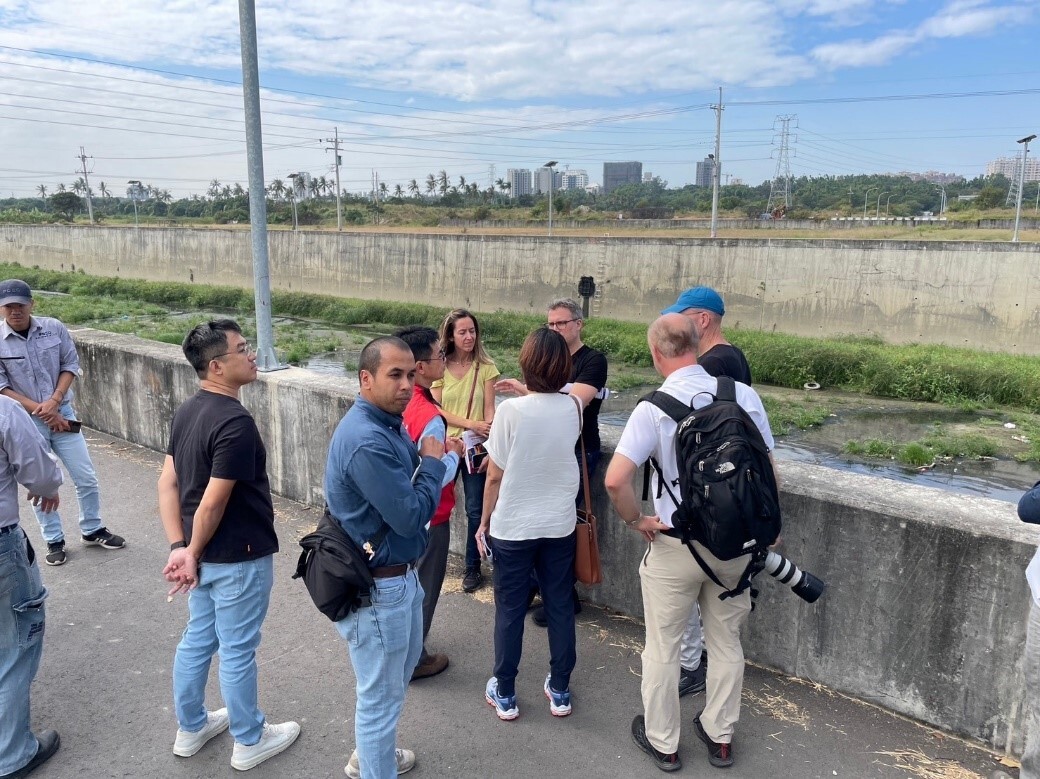
On November 27, Professor Hsiao-Wen Wang's team led members from the United States and Germany on a field visit before the meeting.
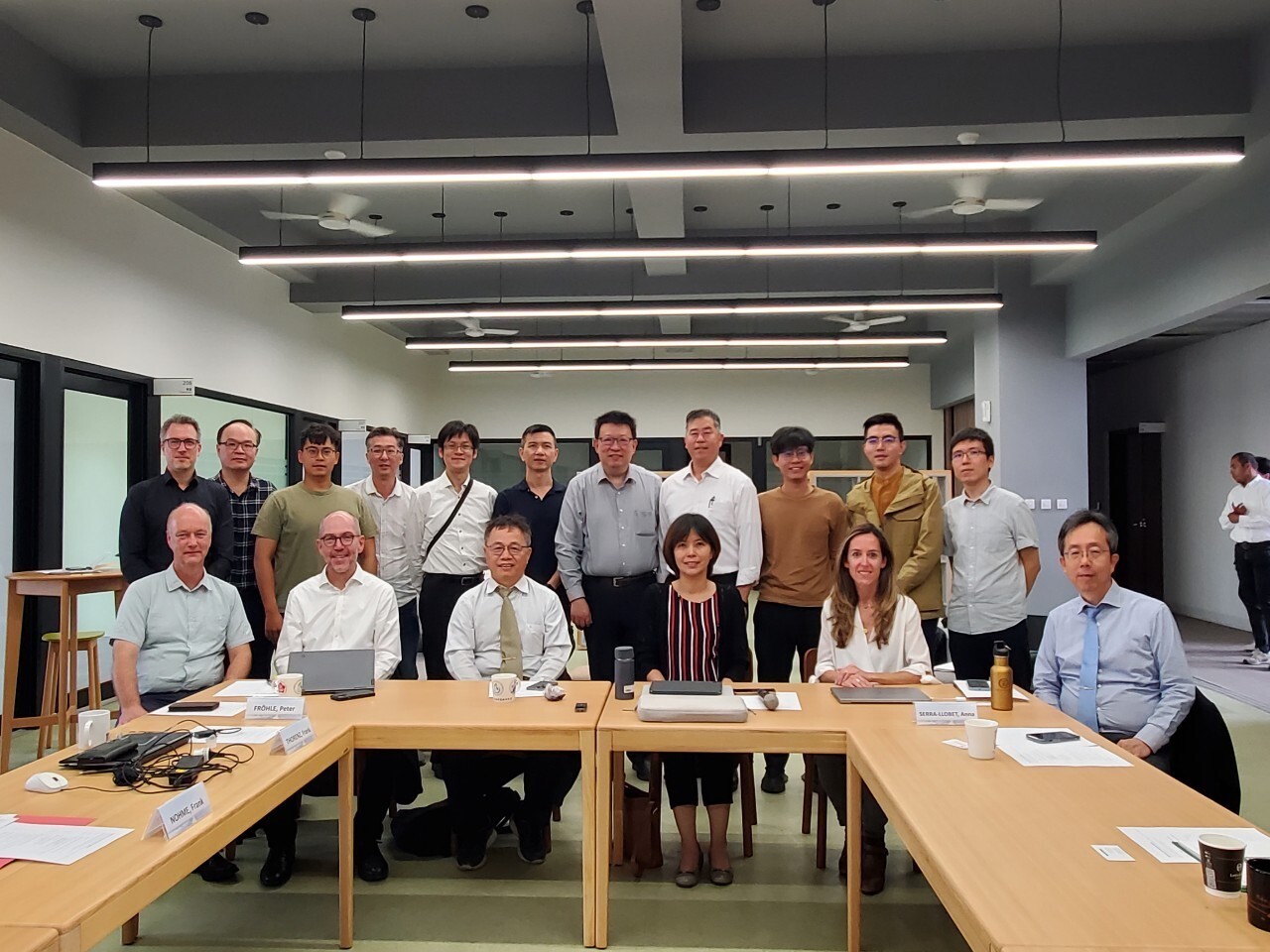
On the workshop day, November 28, scholars from the University of California, Berkeley, and Hamburg University of Technology, as well as officials from Niedersachsen and Hamburg, Germany, attended. In addition to members from our university's Department of Hydraulic and Ocean Engineering, Urban Planning, Economics, and Disaster Prevention Research Center, participants from Taiwanese units such as Water Resources Agency, Sixth River Management Branch of Water Resources Agency, Water Resources Bureau of Tainan City, and National Science & Technology Center for Disaster Reduction were present. In total, about 30 scholars and experts participated.
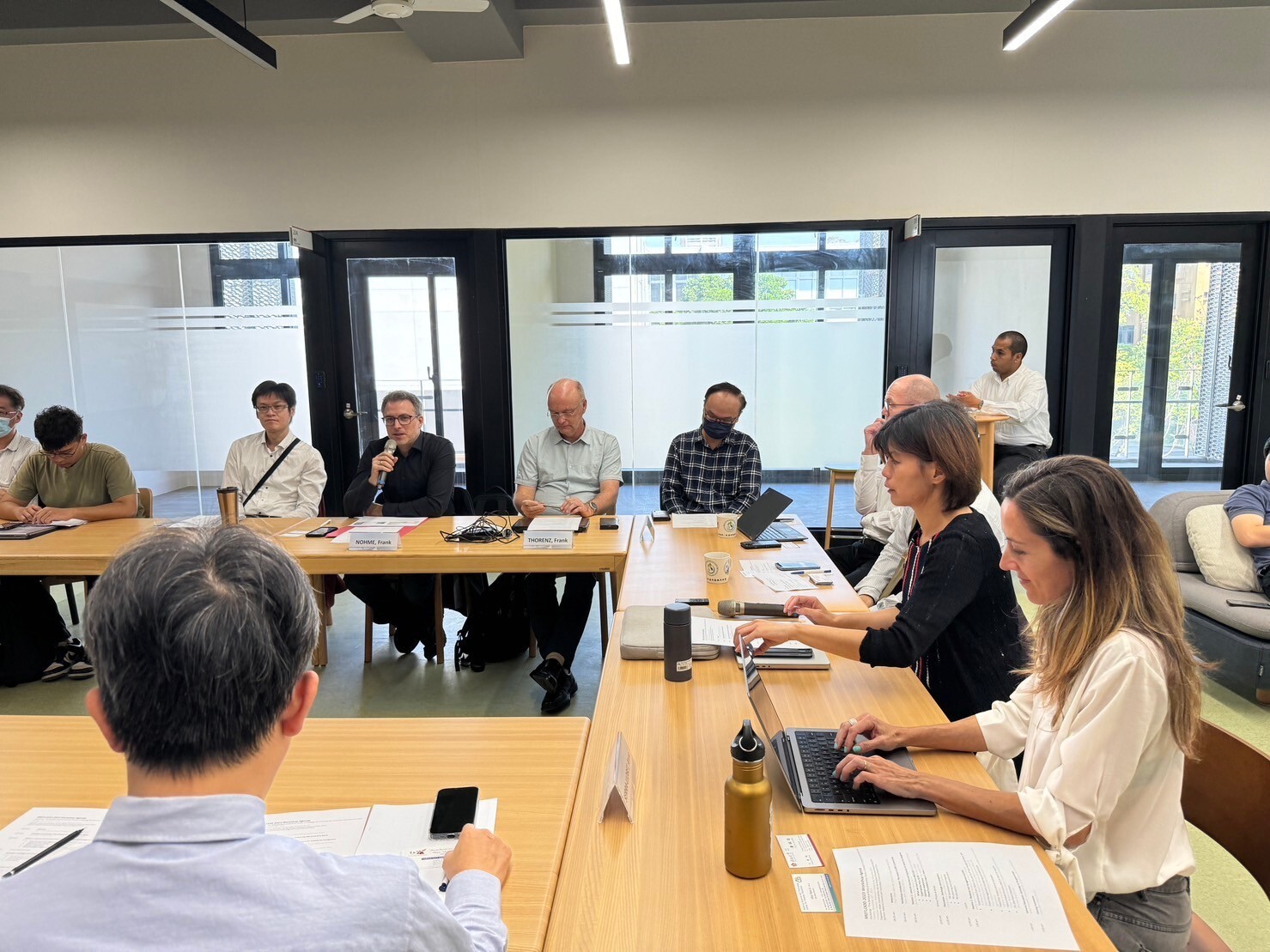
Scholars and representatives from different countries discussed two main topics: "Experiences, Lessons, and Insights on Residual Risks" and "Residual Risk Management and Sustainable Development Goals (SDGs)."
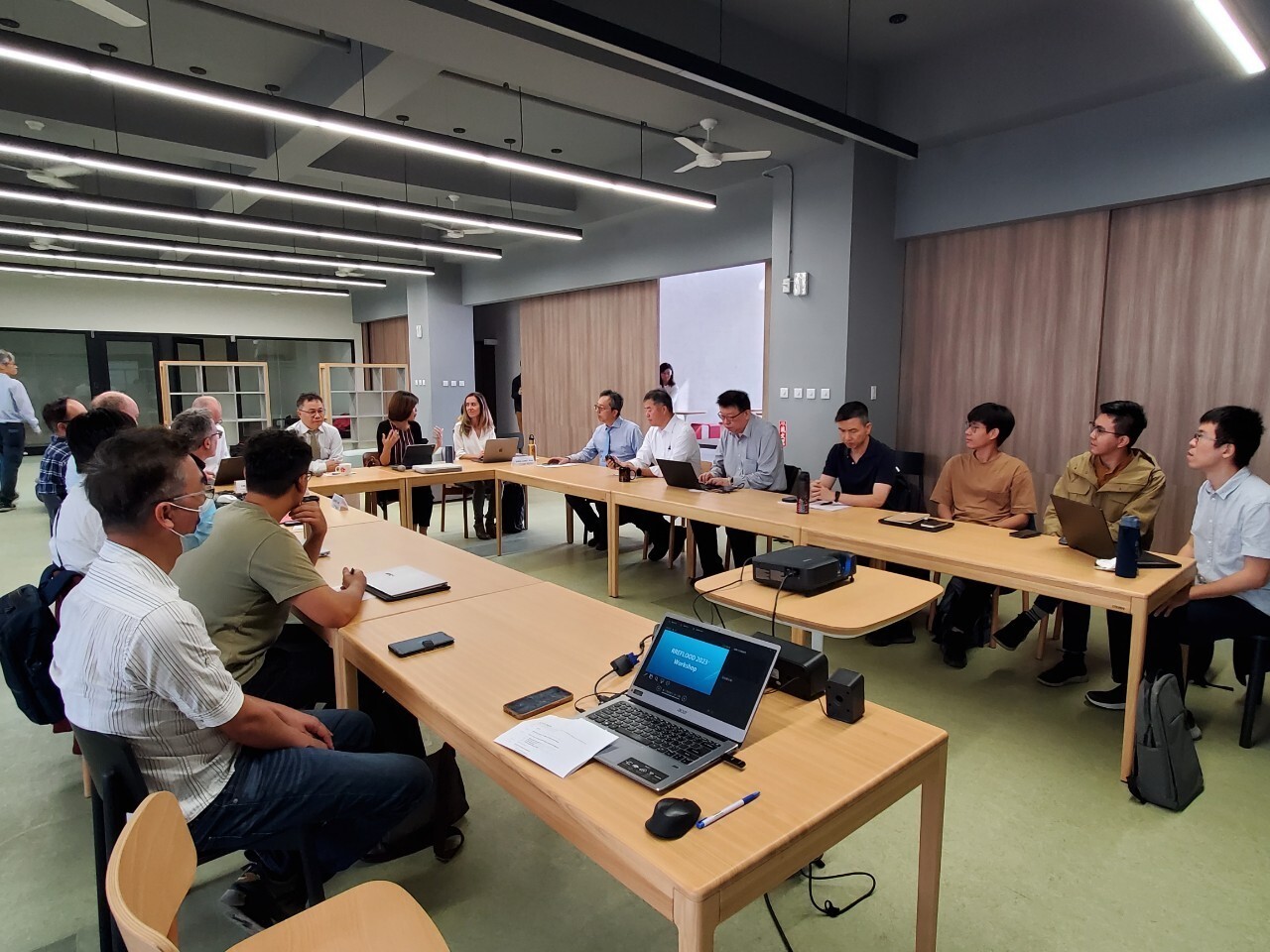
The Taiwanese team also shared case experiences, such as National Science & Technology Center for Disaster Reduction explaining lessons learned from typhoon Morakot, including information dissemination channels during emergencies, the coordinated action system integrating GIS, and the task force for coordinated decision-making and actions.
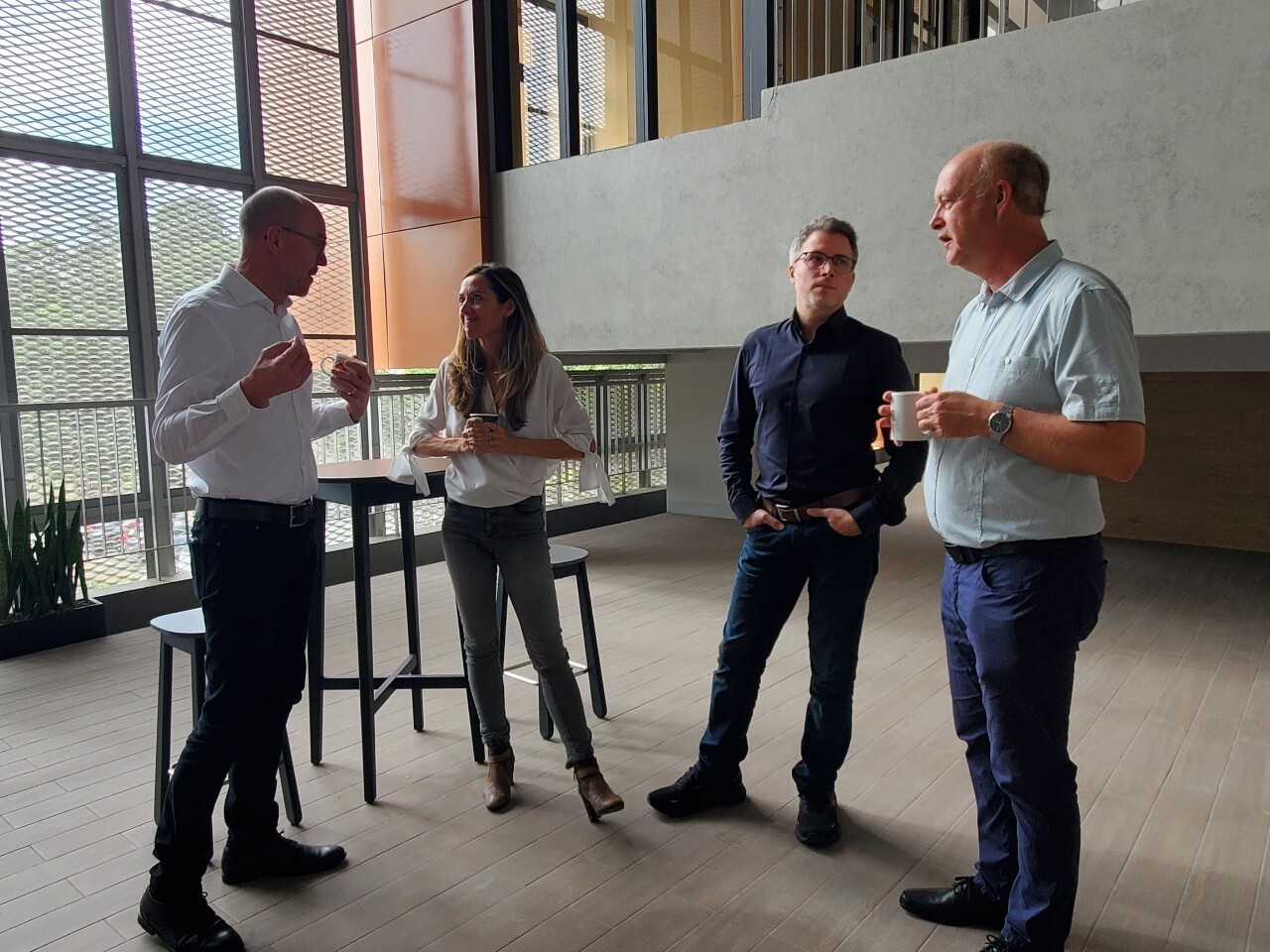
The German representatives (Prof. Peter Frohle, Prof. Frank Thorenz, and Dr. Frank Nohme) and the American representative (Dr. Anna Serra-Llobet) engaged in a joint discussion on the topic of residual flood risks during the workshop.






